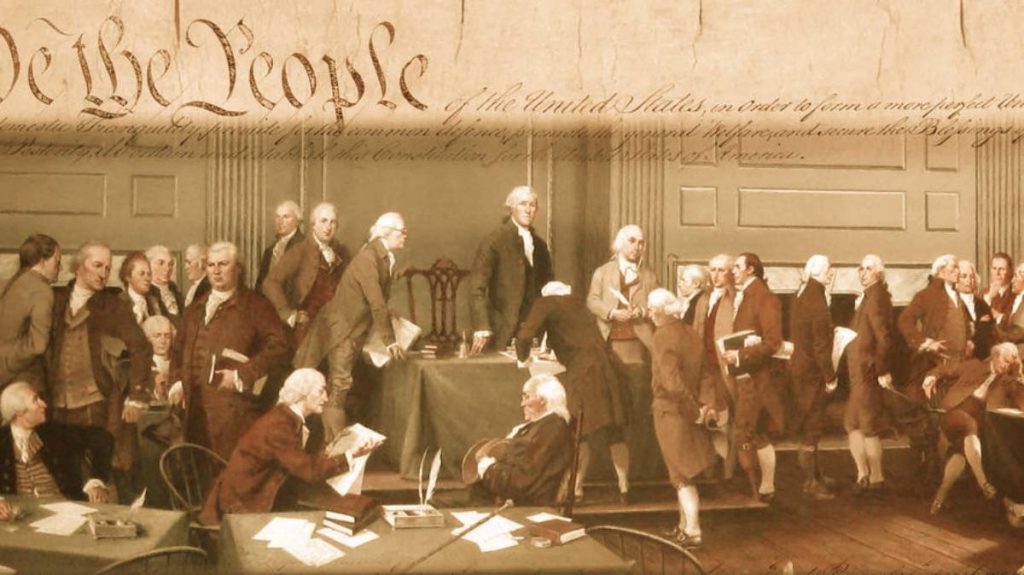Polarization in American History
How division and conflict repeatedly shaped American politics and society, creating patterns that defined the nation's development.
Political polarization occurs when people with different political views become so divided that they can't work together or find compromise. In American history, this has happened repeatedly over major issues like slavery, federal power, and economic policy.
Political Divisions
Different political parties and ideologies competing for power
Regional Conflicts
North vs. South, East vs. West based on different economies and values
Social Tensions
Conflicts over religion, immigration, and social change
Major Examples of American Polarization

Nathaniel Bacon led a rebellion against Virginia's governor because frontier settlers felt abandoned and unprotected by the colonial government. The rebellion revealed deep class divisions between wealthy plantation owners who controlled the government and poor farmers on the frontier who faced constant threats from Native American raids. This early example of American polarization showed how economic grievances, geographic differences, and questions of political representation could tear apart colonial society and create lasting divisions between different groups of white colonists.
From Bacon's Declaration (1676):
"For having, upon specious pretenses of public works, raised great unjust taxes upon the commonalty for the advancement of private favorites..."

Americans were deeply divided over whether to ratify the new Constitution, creating the first major political polarization in the new nation. Federalists, led by Alexander Hamilton and James Madison, argued that a strong central government was necessary to prevent chaos and protect the country from foreign threats. Anti-Federalists, including Patrick Henry and George Mason, feared that the proposed Constitution would create a tyrannical government that would destroy individual liberty and states' rights, leading to heated debates in newspapers, town halls, and state conventions across the country.
Federalist Position
Strong central government needed for national survival
Anti-Federalist Position
Federal power threatens individual liberty and states' rights

The debate over whether Missouri would be a slave or free state revealed deep divisions between North and South that would only get worse over time. Northern congressmen argued that allowing slavery to expand would give the South too much political power and violate the principles of the Declaration of Independence. Southern leaders insisted that Congress had no right to restrict slavery in new territories and that doing so would destroy the economic foundation of their society, leading to bitter debates that nearly tore the Union apart before Henry Clay's compromise temporarily resolved the crisis.
Thomas Jefferson's Warning:
"This momentous question, like a fire bell in the night, awakened and filled me with terror."

Decades of political division over slavery finally led to war when compromise became impossible and eleven Southern states seceded from the Union. The conflict represented the ultimate failure of American democracy to manage extreme polarization peacefully, as both sides became convinced that their way of life could not coexist with the other. The war cost over 600,000 American lives and demonstrated the catastrophic consequences when political divisions become so deep that violence seems like the only solution, forever changing how Americans thought about the limits of democratic compromise.
Abraham Lincoln (1858):
"A house divided against itself cannot stand. I believe this government cannot endure, permanently half slave and half free."
Common Causes
Economic Differences
North vs. South had different economies (industrial vs. agricultural)
Moral Disagreements
Fundamental differences about right and wrong (like slavery)
Power Struggles
Disagreements about federal vs. state government power
Consequences
Breakdown of Compromise
People stop trying to find middle ground
Violence and Conflict
Political disagreements can lead to actual fighting
Weakened Democracy
People lose trust in government and elections
American history shows that polarization is not new - it has been a constant challenge since colonial times. The key lesson is that democracy works best when people are willing to compromise and work together, even when they disagree strongly.
Key Takeaway
The Civil War showed what happens when polarization becomes so extreme that compromise is impossible. Learning to manage disagreement peacefully is essential for democracy to survive.